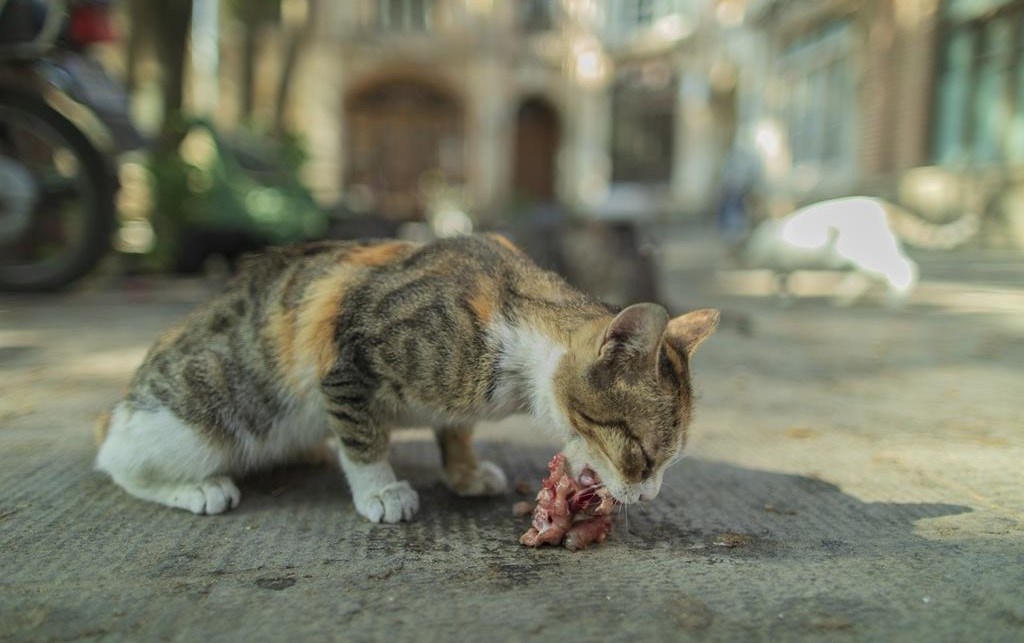Cats are known for their finicky eating habits and their preference for meat-based diets. While many cat owners often turn to commercial cat food to ensure their feline friends receive a balanced diet, questions may arise about feeding cats human food, such as beef. In this article, we’ll delve into whether cats can eat beef, the potential benefits and risks, and how to incorporate it into their diet safely.
The Carnivorous Nature of Cats
Cats are obligate carnivores, which means they require a diet primarily consisting of animal-based proteins to thrive. In the wild, their diet predominantly comprises small mammals, birds, and other creatures. This natural diet has shaped their digestive system and nutritional needs, making them dependent on nutrients found in animal tissues.
Can Cats Eat Beef?
Yes, cats can eat beef, and it can be a valuable addition to their diet. Beef is a good source of high-quality protein and essential nutrients such as vitamins B12, B6, and niacin, as well as minerals like zinc and iron. These nutrients are crucial for a cat’s overall health, including muscle development, immune function, and energy production.

Benefits of Feeding Cats Beef
- Protein: Beef is rich in protein, which is essential for a cat’s muscle growth and maintenance. A diet containing adequate protein helps ensure a cat’s overall well-being.
- B Vitamins: Beef contains various B vitamins, including B12 and niacin. These vitamins play a vital role in a cat’s metabolism, nerve function, and overall vitality.
- Minerals: Beef is a good source of essential minerals like zinc and iron, which contribute to a cat’s immune health and red blood cell formation.
- Variety: Offering beef as an occasional treat or supplement to your cat’s regular diet can provide variety and prevent mealtime boredom.
Risks and Considerations
While beef can be a beneficial addition to your cat’s diet, there are some important considerations and potential risks to keep in mind:
- Cooked vs. Raw: It is crucial to cook the beef thoroughly before offering it to your cat. Raw meat may carry harmful bacteria like salmonella or E. coli, which can make your cat sick. Cooking the meat eliminates these risks.
- Portion Size: Beef should be served in small, controlled portions. Too much beef can lead to an unbalanced diet, as it lacks some of the essential nutrients found in commercial cat food. It should be seen as an occasional treat rather than a primary food source.
- Trim Fat: Trim excess fat and remove any bones before serving beef to your cat, as both can pose health hazards.
- Food Allergies: Some cats may be allergic to beef, just as some humans are. Watch for signs of allergic reactions such as vomiting, diarrhea, or skin issues after introducing beef to your cat’s diet.
- Consult Your Vet: Always consult with your veterinarian before making significant changes to your cat’s diet or adding new foods. They can provide guidance tailored to your cat’s specific needs.

(FAQ) about whether cats can eat beef:
-
Is raw beef safe for cats?
- While some owners feed their cats raw meat, including beef, it comes with risks of bacterial contamination and potential nutrient imbalances. It’s generally recommended to cook beef before feeding it to your cat to minimize these risks.
-
What are the benefits of feeding beef to cats?
- Beef can be a good source of protein and essential nutrients like vitamins B12 and zinc for cats. It can contribute to a diverse diet, helping to prevent dietary deficiencies.
-
Can beef be a cause of allergies in cats?
- Yes, some cats may have allergies or sensitivities to beef. If you notice signs of digestive upset, skin issues, or other allergic reactions after feeding beef, consult your veterinarian and consider eliminating it from their diet.
-
Is ground beef safe for cats?
- Ground beef can be fed to cats as long as it’s properly cooked and doesn’t contain any seasonings or additives. Be cautious with high-fat cuts as they can cause digestive issues in some cats.
-
Can cats eat cooked beef bones?
- No, cats should not be given cooked beef bones. Cooked bones can splinter and pose a choking hazard or cause internal injuries. If you want to provide bone content, consider safe alternatives like commercial cat bone treats.
-
How much beef should I feed my cat?
- Beef should be given in moderation as part of a balanced diet. It should not exceed 10-15% of your cat’s daily caloric intake. Consult your veterinarian to determine the appropriate amount based on your cat’s size, age, and overall health.
In Conclusion
In moderation, beef can be a safe and nutritious addition to your cat’s diet. It can offer valuable protein, vitamins, and minerals that contribute to their overall well-being. However, remember to cook the meat thoroughly, remove excess fat and bones, and consult your veterinarian if you have any concerns about incorporating beef into your cat’s diet. By doing so, you can provide your feline friend with a tasty and healthful treat without compromising their nutritional balance.



